I S S U E 7
Flesh-eating Integrity
Wanda Coleman, Wicked Enchantment, ed. Terrance Hayes,
Penguin Books, 2020
Gene Seymour examines the intimate and powerfully alive lyric of Wanda Coleman
The word ‘ecstatic’ doesn’t come up very often to describe the poems of Wanda Coleman (1946–2013). The content of those poems, with their intimate, rubbed-raw details of private mortification and public indignities, their merciless inquiries into the bruising psychic consequences of oppression, and their torrents of grievance and rage, seem to mitigate any notion of ecstasy—or, for that matter, any sibling sentiment like, say, ‘rapture’ or (God knows) ‘joy’. Yet, much in the manner of the hardcore blues music or John Coltrane solos to which her poems have been favorably compared, Coleman won passionate devotees during her lifetime because however astringent their tone or brutal their details, her poems can be cathartic and invigorating invitations to forsake any and all mundane afflictions and let loose. Joyously.
Wicked Enchantment, the title of the latest posthumous collection of Coleman’s poems, comes as close as anything could to naming the source of this release and the exhilaration they arouse. The collection’s editor Terrance Hayes, who in an introduction aerated with its own effervescence describes his late friend as ‘a great poet, a real in-the-flesh, flesh-eating poet,’ borrowed the title from the first line of Coleman’s ‘American Sonnet 95’, which as with most lines of her work, needs some accompaniment to buttress its power: ‘seized by wicked enchantment, i surrendered my song / as i fled for the stars, i saw an earthchild / in a distant hallway, crying out to his mother, “please don’t go away / and leave us” he was, i saw, my son immediately i discontinued my flight’. Hayes is an award-winning poet whose 2018 collection, American Sonnets for My Past and Future Assassin was inspired by Coleman’s own ‘American Sonnets’, a series that totaled one hundred, though there are other poems in her body-of-work that could be considered sonnets.
I say ‘could,’ because even when Coleman is willing to accommodate some of the sonnet’s rigorous demands, her variations on the form tend to be as disobedient towards formal expectations as her other poems, each of which seem to be spinning out their own idiosyncratic designs as they emerge into being. Her sonnets may look as tightly compacted on the pages as Shakespeare’s or anybody else’s but in the parlance of jazz, she is ‘playing’ her own ‘changes’ within the form. As she told fellow poet Paul Nelson in a 2002 interview:
Since jazz is an open form with certain properties—progression, improvisation, mimicry, etc., I decided that likewise the jazz sonnet would be as open as possible, adhering only to the loosely followed dictate of number of lines. I decided on 14 to 16 and to not exceed that, but to go absolutely bonkers within that constraint. I also give the sonnets a jazzified rhythm structure, akin to platter patter and/or scat and tones like certain Beat writers such as [Jack] Kerouac, [Bob] Kaufman and [Stuart] Perkoff. I decided to have fun–to blow my soul.
What resulted from this ‘bonkers’ approach was a reimagining of the sonnet that made it expansive, more elastic, more open to Coleman’s lyrically colloquial vocalizing and impromptu shifts in tone, tempo and (most especially) motif. Her first such sonnet, leading off the 1994 American Sonnets collection released by her longtime publisher Black Sparrow Press, announces her willingness to toss grenades into the form:
the lurid confessions of an ex-cake junky: ‘i blew it
all. blimped. i was really stupid. i waited
until i was forty to get hooked on white flour
and powdered sugar
And then, this happens:
white greed black anger
__________________ x ___________________ =
socio-economic dominance socio-economic disparity
a) increased racial tension/polarization
b) increased criminal activity
c) sporadic eruptions manifest as mass killings
d) collapses of longstanding social institutions
e) the niggerization of the middle class
the blow to his head cracks his skullhe bleeds eighth notes & treble clefs
(sometimes i feel like i’m almost going)
to Chicago, baby you want to go?
Purists can block their ears and go ‘la-la-la’ to such byplay all they want. But Coleman is laying down, here and elsewhere, her own sense of purity: one that insists on tugging broader contexts out from under intimate observations. Such tactics may seem overly, even fatally haphazard to fustier sensibilities. But the transitions make the same kind of ‘sense’ as the shifting rhythms and harmonies in a piece written and performed by Coleman’s fellow Los Angeles native Charles Mingus, who forged as intensely personal and socially expansive body of work in jazz composition as she did in poetry.
The sonnet form contained and channeled Coleman’s mordant humor, explosive language, and imagery that, whether naturalistic or surreal, was always graphic. Such stark, off-kilter and oddly funny visions leap out in phantasmagoria like ‘Doing Battle with the Wolf’ in which she describes leaving trails of blood ‘standing in line at the bank / filling my tank at the gas station /visiting my man in prison . . . ’ while keeping a wary eye out for ‘my enemy . . . the wolf . . . who eats even the mind . . . and has a fetish for black meat . . . ’ and, a few pages later, in ‘They Came Knocking at My Door at 7 a.m.’, evoking similar, if more grounded-in-reality terrors from an egregious early-morning police shakedown: ‘they had a warrant for my arrest / ‘what’s your name? where’s your identification?’ / I was half-naked so they didn’t come inside / figuring they’d caught me in mid-fuck / they were right / coitus interruptus LAPD is a drag.’ Here and elsewhere, Coleman’s facility at setting scenes and heightening tension reminds you that one of the many jobs she held in her lifetime was as a staff writer in the mid-seventies for the long-running American soap opera, Days of Our Lives.
As shown earlier, Coleman was often the best analyst of her own style. In her ‘Essay on Language 2,’ she talks about the ways in which the Black ‘tongue’ (self-expression) was ‘thru deceit’ kept alive and allowed ‘to live within us . . . so that it speaks within our bodily movements so that it seduces English, snaking back to ourselves, so that the dominant [American] tongue once infected with our hunger will one day succumb without divining what happened . . . ’
In her rousing finale, she further declares:
and even now i
gibber in my diverse postures, cajoling and conjuring, this spelling
out. this gospel. it is about being and recognition of being. my tongue
alive in my particular vocalizations, chorusing with like others also
singing
it be about de bones and doing something.
Childhood and childbirth; the hurt of being dismissed or altogether ignored by lovers and strangers for being a woman-of-color; the burdens of history and the deliverance from those burdens by one’s own culture . . . All this and more (along with those aforementioned ‘vocalizations’) are sifted, seasoned and, in Coleman’s own manner, refined through her sinewy, serrated and ample verse. She became as legendary and iconic a voice for her L.A. hometown as those of fellow southern Californians and Black Sparrow authors Charles Bukowski and John Fante. You need only read ‘I Live For My Car’ to acknowledge her Angelino temperament (most especially in the couplet, ‘i have frequent fantasies of running over people I don’t like / in my car.’)
Coleman’s achievements and legacy as ‘the unofficial poet laureate of Los Angeles’ were duly acknowledged in the obituaries following her death, nine days after her sixty-seventh birthday, in 2013. Yet few of those obituaries failed to mention the time she struck Maya Angelou with the business end of her intellectual integrity in April, 2002, when Angelou, a canonical figure in Black American literature who read one of her poems at Bill Clinton’s inauguration, published A Song Flung Up to Heaven, the third follow-up to her breakthrough 1969 memoir I Know Why the Caged Bird Sings. Coleman reviewed Angelou’s book for her hometown Los Angeles Times Book Review and, essentially, Let Her Have It, describing A Song Flung’s contents as ‘empty phrases and sweeping generalities . . . dead metaphors and clumsy similes’. Coleman’s wasn’t the only negative review, but hers sustained the most conspicuous resentment, drawing what her editor at the Book Review described as an unusually high volume of mail (pro and con) and, worse, getting her disinvited to a book signing at Eso Won Books, L.A.’s leading African-American bookstore. The whole foofaraw went nationwide: ‘Slam Queen vs. Inaugural Poet’ was the headline for Thulani Davis’s Village Voice account. ‘Coleman,’ Davis wrote, ‘is someone who might be called an outlaw critic, and very much the opposite of the public Angelou, a high priestess of pomp and serenity.’
I wouldn’t have brought it up here, except that in defending herself in The Nation magazine five months after her review ran from those who accused her of petty malice, Coleman made a case for artistic and critical freedom as sharply focused as any of her sonnets:
I am acutely aware of the anger any reviewer may incite when criticizing the work of a popular author, and that the density and history of the African-American community may intensify that anger. Few readers enjoy having their favorite author-hero or heroine excoriated. However, the job of the reviewer is to bring the best analysis of the book, and perhaps the author, to the readership–whoever makes up that readership, black, white or otherwise.
All literary criticism, at root, is biased—the favorable and unfavorable alike—because reviewers must bring to the act their individual worldview and aesthetic sensibility. And it is up to each to decide if the social values of a text as a political record is more important than its literary values—which is often the choice when books by African-Americans are under review. But fostering an illusion of excellence where none exists, regardless of the race, gender or class of the writer, or the subject matter of the text, is to do a democratic readership the ultimate disservice. Saying amen to the going cultural directives, minus a true analysis, is as morally suspect as any bigoted criticism—whether done out of guilt, fear or the desire to compensate the author for the social ills that shaped his or her existence.
Still, is it OK if I say ‘amen’ here?
Gene Seymour is a cultural critic who lives in Philadelphia.
